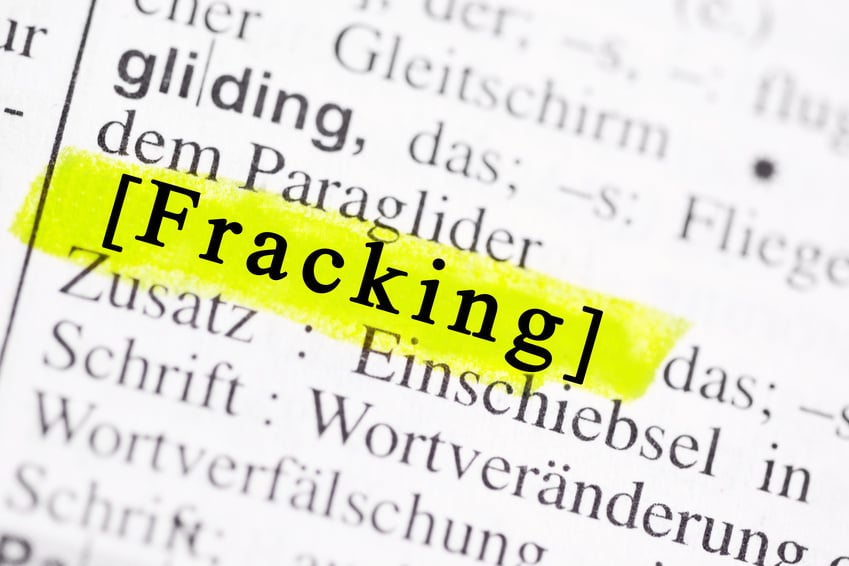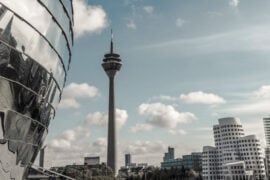On April 1, 2015, the German Federal Cabinet (Bundeskabinett) approved a legislative package introducing broad restrictions on the use of hydraulic fracturing technology (fracking) in Germany. The legislative bill prohibits hydraulic fracturing in certain areas to protect drinking water supply, health and nature, and sets strict limits on unconventional fracking operations in shale, argillaceous rock, marl or coal seam. Additionally, it tightens the re-quirements for conventional natural gas and oil extraction. The bill will now be submitted to the Parliament (Bundestag).
Background
As the use of hydraulic fracturing technology has expanded around the globe, so have concerns about its environmental and public health impacts. The fracking technology, which creates fractures in rocks and rock formations by injecting fluid into cracks to force them further open, is used for extracting natural gas and oil that lies within rock formations deep beneath the earth’s surface and for geothermal purposes. Arguments against hydraulic fracturing center upon the extent to which fracturing fluid used might pollute drinking water supplies, contaminate surface or near-surface water supplies, impact rock shelf, thereby causing seismic events, or lead to surface subsidence, risk air quality and the potential mishandling of waste. Besides that, fracking requires the use of substantial amounts of water and massive land use. Currently, there are no regulations in Germany specifically addressing the issues raised by fracking. While companies generally require a license and the approval of mining activities both for the exploration and the extraction of gas reserves, current legislation does not expressly mention environmental aspects as part of the review procedure. While a license may be denied if it runs contrary to predominant public interests, including environmental concerns, a detailed environmental impact assessment (EIA) is not mandatory.
Proposed Legislation
The Cabinet’s legislative package is guided by the principle that fracking should be allowed only if environmental and health risks can be safely ruled out. It contains the following central proposals:
- Temporary ban on fracking in depths above 3,000 m
The principal feature of the proposed legislation is a temporary ban on fracturing in shale, argillaceous rock, marl and coal seam in depths above 3,000 meters (so-called unconventional fracking). This ban is justified by the fact that there is no experience in Germany on the potential environmental effects of such unconventional fracking. Therefore, only scientifically supported test drilling for the purpose of exploring the environmental effects of such drilling will be permitted, and only if the fracturing fluid does not pollute drinking water supplies. The Federal Government plans to create an independent committee of experts to observe the scientific test drillings and to evaluate the results in yearly reports, beginning in 2018. Based on the committee’s evaluations, unconventional fracking in specified rock formations may be allowed in the future. Ban on hydraulic fracturing in water-sensitive areas, nature conservation areas and Natura 2000 conservation areas Hydraulic fracturing in specific, water-sensitive areas will be prohibited. The ban on fracking includes areas such as water and medicinal springs protection zones, and lakes and dams relevant for public drinking water supply. The individual German States are given authority to expand this ban to include areas relevant for the supply of natural mineral water sources, water intake zones for the production of beverages and coal mining areas. Furthermore, fracking operations will be generally prohibited in national nature conservation areas (national parks, nature preserves) and European Natura 2000 conservation areas.
- Mandatory environmental impact assessment
An environmental impact assessment will be mandatory in all approval procedures for deep drilling activities for gas, oil or geothermal energy using the fracking technology. This requirement relates to both conventional and unconventional fracking and aims to guarantee complete transparency and a greater public participation in the approval process.
- Publication and reporting requirements
Where fracking operations are allowed, they will be subject to strict publication and reporting requirements, e.g. regarding the substances and materials used.
- Stricter liability for mining damages
The proposed “Act on the Extension of Liability for Mining Damages to Borehole Drilling and Caverns” strengthens the position of persons affected by mining damages. In the case of mining damages which can be attributed to fracking or deep drillings, the affected persons do not need to prove that their individual damages were caused by the fracking method, as would be the case under general liability rules. The proposed act reverses the burden of proof, meaning that the company using the fracking method will need to prove that the damage was not caused by this method in order to exclude liability.
Outlook
The use of fracking in Germany has been subject to a highly public, contentious debate over the past years. It is not surprising, therefore, that the recent proposal also faces criticism from all political camps. Several environmental groups and the Green Party have already criticized the Cabinet’s decision as “pro-fracking”, stating that only a total ban would support climate protection. Also, there are fears that the initial test drillings will pave the way for companies to use unconventional fracking commercially in the future. On the other hand, industrial associations and members of the economic wing of the Conservative Party warn that the requirements are overly onerous and could essentially cut off the future exploitation of natural gas in Germany. Against this background, the outcome of the legislative process remains unpredictable.



